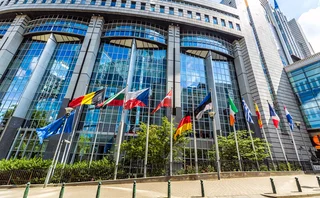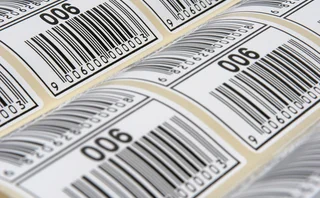
Non-US airlines profit from low-flying dollar
The weak dollar is giving airlines outside the US some relief from the impact of high fuel costs, according to their latest financial results, reports Risk’s sister publication, FXWeek .
Japan Airlines said exchange benefits amounted to ¥9.3 billion ($84.5 million) in its air transport segment for the six months to September 30, helping it report a net profit of ¥83 million, against a net loss of ¥57.6 million for the correpsonding period last year.
The average dollar/yen exchange rate in the six months to September 30 was ¥118.7, compared with ¥109.7 in the corresponding period of 2003.
British Airways said it had made £4 million ($7.3 million) from the weakening yen rate against sterling in its second quarter – British Airways' financial year runs from April 1 to March 31.
The unexpected boost to the firm's balance sheet came after a charge of £58 million for the same period the previous year.
Keith Williams, group treasurer and head of tax at British Airways in London, said that while his firm is fairly neutral to sterling/dollar exchange rates, as a large proportion of its revenues as well as costs are dollar-based, "at current weak dollar rates, it becomes incumbent on the treasurer to lock in some of the benefit".
He said European airlines facing large increases in their fuel costs generally welcome a weak dollar as it offsets some of the price increase on the fuel itself. "It also reduces some of their other dollar costs, for example, aircraft costs and landing charges."
But although US airlines faced the double whammy of high oil costs and a weak domestic currency, only those with large Asian operations, such as Northwest, United and to a lesser extent Continental, have done any significant currency hedging, said Glenn Engel, airline analyst at Goldman Sachs in New York. These companies have far more yen revenues than yen expenses, so they try to lock in a profitable yen/dollar rate and prefer a weak dollar, he said.
Only users who have a paid subscription or are part of a corporate subscription are able to print or copy content.
To access these options, along with all other subscription benefits, please contact info@risk.net or view our subscription options here: http://subscriptions.risk.net/subscribe
You are currently unable to print this content. Please contact info@risk.net to find out more.
You are currently unable to copy this content. Please contact info@risk.net to find out more.
Copyright Infopro Digital Limited. All rights reserved.
You may share this content using our article tools. Printing this content is for the sole use of the Authorised User (named subscriber), as outlined in our terms and conditions - https://www.infopro-insight.com/terms-conditions/insight-subscriptions/
If you would like to purchase additional rights please email info@risk.net
Copyright Infopro Digital Limited. All rights reserved.
You may share this content using our article tools. Copying this content is for the sole use of the Authorised User (named subscriber), as outlined in our terms and conditions - https://www.infopro-insight.com/terms-conditions/insight-subscriptions/
If you would like to purchase additional rights please email info@risk.net
More on Foreign exchange
Stemming the tide of rising FX settlement risk
As the trading of emerging markets currencies gathers pace and broader uncertainty sweeps across financial markets, CLS is exploring alternative services designed to mitigate settlement risk for the FX market
Power-reverse to the future: falling yen revs up PRDCs again
Pressure on Japanese unit sparks revival in power-reverse dual currency notes
Credit Suisse and Commerz latest banks to ditch hold times
Mizuho also confirms zero last look add-on but MUFG’s policy unclear on the controversial FX practice
Has Covid stopped the clocks on FX timestamp efforts?
Budget reallocation may not be the only factor stalling standardisation progress, say participants
EU benchmark drama set for cliffhanger end
Access to key FX rates due to be decided six months before potential cut-off
Banks rent ready-made algos for FX trading
NatWest, XTX Markets and others develop new outsourcing model for tech
Who killed FX volatility?
Beyond central bank policy, traders see a range of hidden structural factors at work
Harnessing the benefits of more automated fx trade lifecycle operations
FX markets are unique not only in their scale but also in their complexity. There are multiple trading paradigms, and also multiple venues where trades may be executed. The FX ecosystem is highly fragmented and the case for more automation – more…
Most read
- Top 10 operational risks for 2024
- The American way: a stress-test substitute for Basel’s IRRBB?
- Filling gaps in market data with optimal transport







